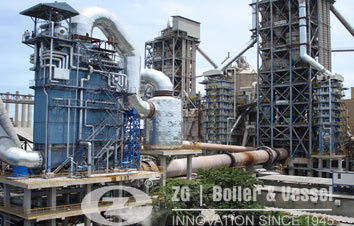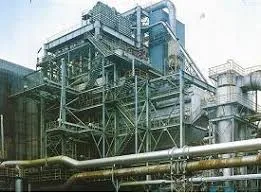Advantages Of Waste Heat Recovery Boilers
Advantages And Disadvantages Of Waste Heat Recovery Boilers

Waste heat recovery boilers are widely used in large scale industries to recover waste heat in process and then heat water to produce hot water or high temperature high pressure steam to generate power, which can save large quantity of energy and cost for industries. But there are also some disadvantages exist.
Waste heat recovery industrial steam boiler
Advantages Of Waste Heat Recovery Boiler
The recovery process will add to the efficiency of the process, the efficiency is increased and thus the costs of fuel and energy consumption needed for that process is decreased. On the other hand, air pollution will dramatically decrease because less flue gases of high temperature are emitted from the plant to the atmosphere. The fuel consumption will be reduced, so the control and security equipment for handling the fuel decreases. Pumps, filters, fans and other accessories are no longer needed.
Disadvantages Of Waste Heat Recovery Boiler
Generally speaking, a waste heat boiler will cost much. Waste heat is of low quality, it can be difficult to efficiently utilize the quantity of low quality heat contained in a waste heat medium. The capital cost to implement a waste heat recovery system may outweigh the benefit gained in heat recovered. Besides, additional equipment requires additional maintenance cost.
So the waste heat recovery boilers are efficient but not necessary for every industry. For chemical industry, cement kiln industry, carbon rotary kiln industry, sulfuric acid industry, coke dry quenching industry, and other industries that produce large quantity of high temperature waste heat in process, this type of boiler is needed and efficient for energy saving and heat reuse and can create much benefits for industry. With waste heat recovery boilers, the cost of industry could be reduced by at least 30%. But for some industries that produce discontinue or less waste heat, the cost of equipment is more than that it saved. Then we can save cost and improve efficiency by improve combustion efficiency, select high quality equipment and so on.
-
Top Industrial Boiler Contractors Supplier & Factory Quality Products & ServicesNewsJun.10,2025
-
Panasonic Hot Water Boiler - Reliable & Energy Efficient Heating SolutionNewsJun.10,2025
-
Pennco Steam Boilers High-Efficiency & Durable SolutionsNewsJun.10,2025
-
Industrial Boiler & Mechanical Solutions Efficient Industrial Heating SystemsNewsJun.10,2025
-
Panasonic Hot Water Boiler - Energy-Efficient, Reliable Heat SolutionNewsJun.10,2025
-
Premium Power Plant Steam Boilers High Efficiency & ReliabilityNewsJun.09,2025


